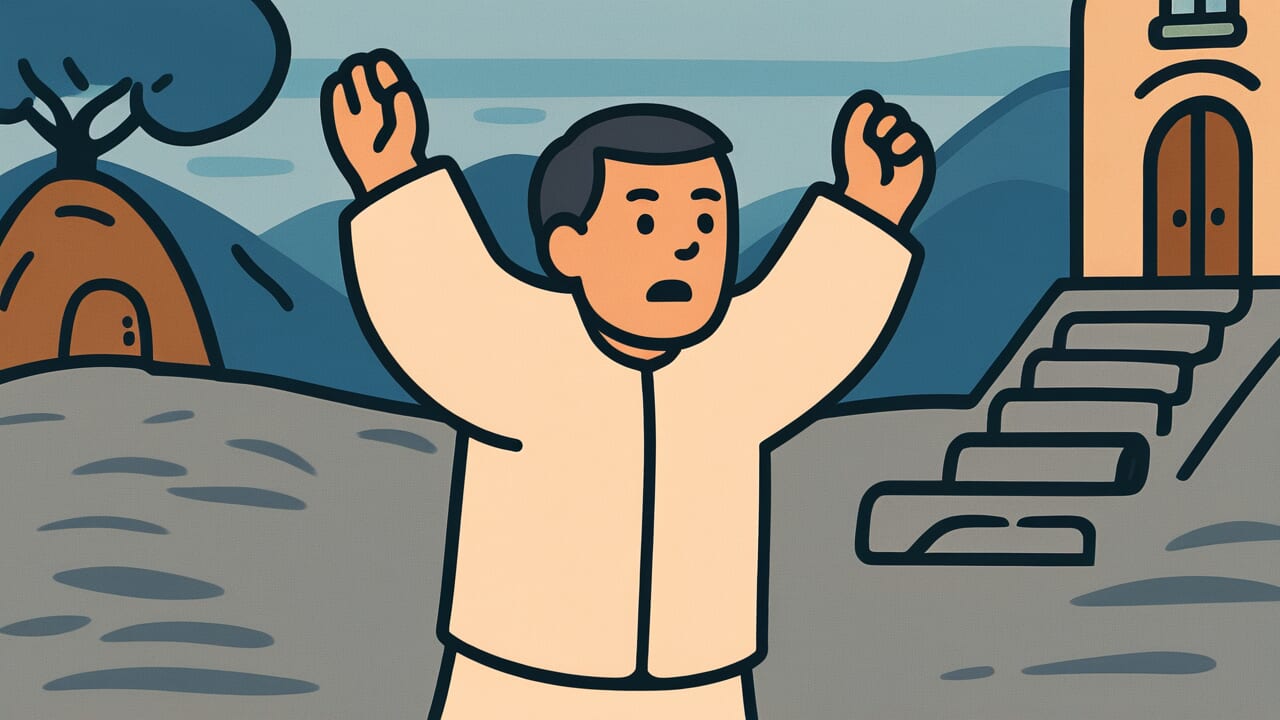How to Read “Living is hard, dying is easy”
Sei wa kataku shi wa yasushi
Meaning of “Living is hard, dying is easy”
This proverb expresses a harsh truth about life. Living is difficult, but dying is simple.
To survive each day, we must obtain food, secure shelter, build relationships, and endure various hardships and suffering. The challenges of living never end—illness, poverty, relationship troubles, and countless other problems.
In contrast, dying can happen in a single moment of decision or action. This is the stark comparison the proverb makes.
But the essence of this saying goes beyond stating facts. It contains a warning: precisely because living is hard, life has value, and we must not throw it away easily.
Continuing to choose the difficult path is human dignity. This is the meaning of life, the proverb teaches.
Even today, when we face life’s difficulties, these words remind us of the weight and value of living.
Origin and Etymology
The exact source of this proverb is debated. However, it likely reflects the influence of ancient Chinese philosophy.
In Taoist and Buddhist thought especially, the question of life and death has always been an important theme.
Looking at the structure of the words, we see opposing concepts—”life” and “death”—contrasted with “difficult” and “easy.” This parallel expression style is common in Japanese sayings influenced by classical Chinese literature.
This expression appears in documents from the Edo period. This suggests the proverb has been used in Japan for at least several hundred years.
People of that era experienced the harshness of daily life firsthand. They faced threats to their lives far more often than we do today—famine, epidemics, warfare.
Against this historical backdrop, the contrast between the difficulty of continuing to live and the ease of dying was something people understood from real experience.
Some say this proverb also connects to the spirit of bushido. For samurai, death was tied to honor.
In some eras, living in shame was considered worse than dying. Within such values, this proverb may have functioned to help people recognize the weight of living.
Usage Examples
- Watching my father continue working while battling illness, I truly felt the weight of the words “Living is hard, dying is easy”
- I’ve failed repeatedly since starting my business, but I tell myself “Living is hard, dying is easy” and keep pushing forward
Universal Wisdom
This proverb has been passed down for hundreds of years because it touches a fundamental truth about human existence. Living is inherently difficult.
This doesn’t just mean physical survival is hard. It means swinging between hope and despair, tormented by regret and anxiety, yet still making the effort to face tomorrow. This is the essence of living.
Everyone experiences moments in life when they think “I can’t do this anymore.” At such times, running away seems surprisingly easy.
But our ancestors saw that the value of living lies precisely in that difficulty. Continuing to choose the hard path rather than the easy one—that is human dignity. That is the brilliance of life.
This proverb contains another deep insight. By acknowledging that living is difficult, we paradoxically find courage to live.
When we honestly admit “living is hard,” we free ourselves from self-blame. It’s natural for things to be difficult. And we can feel a little proud of ourselves for facing those difficulties.
Human strength isn’t about avoiding hardship. It’s about accepting difficulty and still moving forward. This is what the proverb teaches us.
When AI Hears This
The body temperature of a living human is about 36 degrees Celsius. This is higher than the surrounding air temperature.
Simply by being alive, we constantly work to prevent heat from escaping. We digest food and convert it to energy. With that energy, we maintain body temperature, repair cells, and preserve order.
This directly opposes the law of entropy in physics—the principle that “everything becomes more disordered.” It’s a rebellion against the universe’s fundamental rule.
Imagine a room. If you don’t clean it, it naturally becomes messy. This is entropy increasing. To keep it tidy requires daily energy expenditure for organizing.
The human body is the same. Living means constantly tidying up a body that wants to fall into disorder, second by second.
The heart beats about 100,000 times per day. Cells continuously replace themselves. Breathing never stops.
What happens when we die? Body temperature matches the surroundings. Chemical reactions cease. The body naturally decomposes.
No effort is required. This is simply following the laws of the universe. When life ends, we can finally surrender to the universe’s flow.
This proverb recognized that living is a grand resistance movement against physical laws—long before science was born.
Lessons for Today
This proverb teaches modern people the importance of not looking away from life’s difficulties.
In our age of social media, we constantly see others’ shining moments. We easily forget the obvious fact that “living is inherently difficult.”
If you’re suffering from something right now, it’s not because you’re weak. Living itself is difficult.
This recognition should bring you relief. You don’t need to be perfect. Just getting through each day means you’re trying hard enough.
Waking up in the morning, eating meals, going to work or school, interacting with people, sleeping again—this ordinary repetition is actually an accumulation of tremendous effort. Please realize this.
At the same time, this proverb gives us hope. Precisely because it’s difficult, living has value.
People aren’t moved by things that come easily. The fact that you survived today—that itself is a small victory.
Tomorrow, let’s accumulate another small victory. That’s what makes your life irreplaceable.



Comments